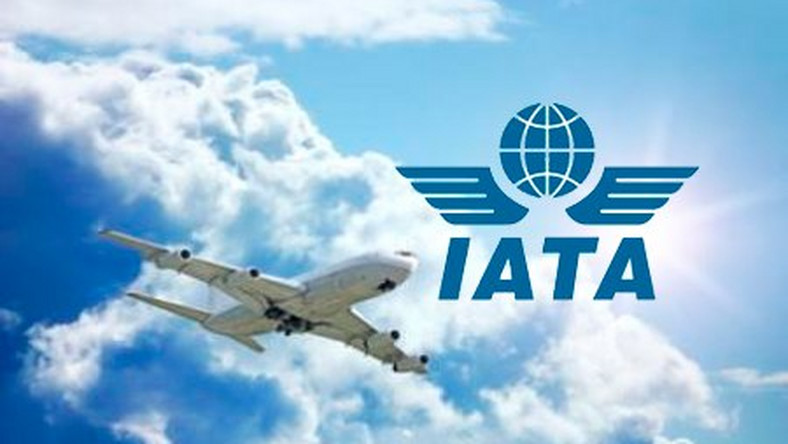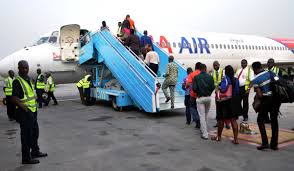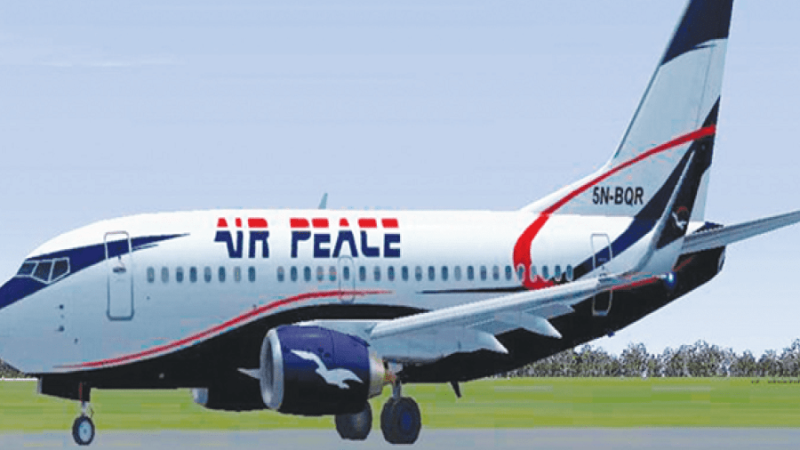COVID-19: Africa, Middle East Airlines Lose $23bn Revenue – IATA


Losses by African Airlines and Middle East is estimated to have reached $23 billion (N8.74 trillion) due to the Coronavirus pandemic ravaging the world.
Muhammad Al-Bakri, the IATA’s Regional Vice President for Africa and the Middle East, made the disclosure in a statement issued in Lagos.
Mr Al-Bakri said about $19 billion (N7.22 trillion) and $4 billion (N1.52 trillion) had so far been lost by the airlines operating in the Middle East and Africa, respectively.
He said this translates into a drop in industry revenues by 32 percent for Africa and 39 percent for the Middle East for 2020 compared with those of 2019.
He, therefore, called for urgent action from governments in Africa and the Middle East to provide financial relief to the airlines.
Mr Al-Bakri explained that some of the impacts at the national level included the Saudi Arabia, United Arab Emirates, Egypt, Qatar, Jordan, South Africa, Nigeria, Ethiopia and Kenya.
“In Saudi Arabia, it’s 26.7 million fewer passengers, resulting in a US$5.61billion revenue loss, risking 217,570 jobs and US$13.6 billion in contribution to Saudi Arabia’s economy.
“In UAE, it’s 23.8 million fewer passengers, resulting in a US$5.36 billion revenue loss, risking 287,863 jobs and US$17.7 billion in contribution to the UAE economy.
“In Egypt, 9.5 million, it’s fewer passengers, resulting in a US$1.6 billion revenue loss, risking almost 205,560 jobs and around US$2.4 billion in contribution to Egypt’s economy.
“In Qatar, it’s 3.6 million fewer passengers, resulting in a US$1.32 billion revenue loss, risking 53,640 jobs and US$2.1billion in contribution to Qatar’s economy.
“In Jordan, it’s 2.8 million fewer passengers, resulting in a US$0.5 billion revenue loss, risking 26,400 jobs and US$0.8 billion in contribution to Jordan’s economy.
“In South Africa, there were 10.7 million fewer passengers, resulting in a US$2.29 billion revenue loss, risking 186,850 jobs and US$3.8 billion in contribution to South Africa’s economy.
“In Nigeria, it’s 3.5 million fewer passengers, resulting in a US$ 0.76 billion revenue loss, risking 91,380 jobs and US$0.65 billion in contribution to Nigeria’s economy.
“The same thing in Ethiopia, with 1.6 million fewer passengers, resulting in a US$0.3billion revenue loss, risking 327,062 jobs and US$1.2 billion in contribution to Ethiopia’s economy.
“In Kenya, it’s 2.5 million fewer passengers, resulting in a US$ 0.54 billion revenue loss, risking 137,965 jobs and US$1.1 billion in contribution to Kenya’s economy.
Al-Bakri said to minimise the broad damage that those losses would have across the African and Middle East economies, it was vital that governments stepped up their efforts to aid the industry.
He said IATA was calling for a mixture of direct financial support, loans, loan guarantees and support for the corporate bond market tax relief.
The IATA chief said it was starting to see several governments in the region providing some financial and tax reliefs, including deferral of aircraft lease payments by the government of Cape Verde.
He said others are extension of VAT refund payment dates in Saudi Arabia and positive considerations for financial relief from governments across the region, including Jordan, Rwanda, Angola and the UAE.
Mr Al-Bakri said the air transport industry was an economic engine, supporting up to 8.6 million jobs across Africa and the Middle East, with $186 billion in GDP.







